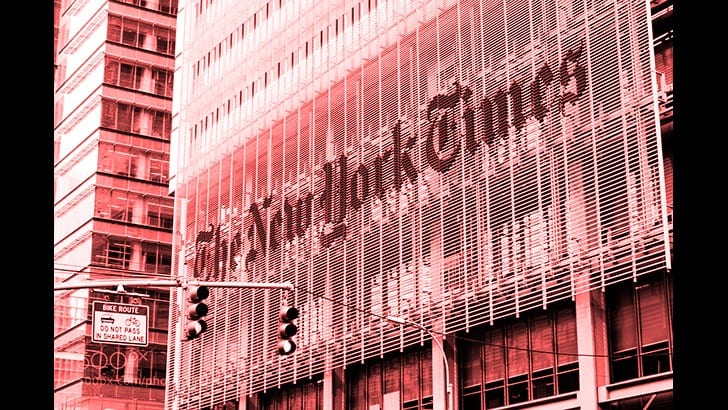
November 28, 2017
BY JASON PRAMAS @JASONPRAMAS
The timing couldn’t have been better. No sooner did this publication release last week’s editorial announcing our “unnaming” policy of refusing to print the names of ultra-right wing leaders and organizations, than the Gray Lady provided the best possible example of the type of reporting we think American news organizations need to stop producing immediately.
The New York Times article in question offered a warm and fuzzy portrait of a midwestern nazi family. The reporter, Richard Fausset, didn’t press his subjects about their politics in any meaningful way and essentially humanized them for no good reason at all. The result of this misstep was a huge and immediate backlash from the public. And Atlantic magazine swiftly retorted with a devastating parody of the piece called “Nazis Are Just Like You and Me, Except They’re Nazis… despite what you may have read in The New York Times.” A must read, if ever there was one.
What Fausset and his editors did was valorize an ultra-right winger and his small but growing political party. They provided publicity where none was called for. In doing so, they violated their ethical mandate as journalists to “minimize harm” in their reporting. Since the article will doubtless help recruitment for its subject’s organization while making nazi ideology seem like a totally ok belief system that anyone might have.
So, for readers wondering why DigBoston has taken our stand of refusing to publicize the ultra right, this episode should provide clarity. Nothing good comes of news organizations helping nazis, fascists, and white supremacists spread their ideas. We’re not doing it going forward, and we continue to encourage our colleagues around the country to join us in our stand.
Jason Pramas is the executive editor and associate publisher of DigBoston.